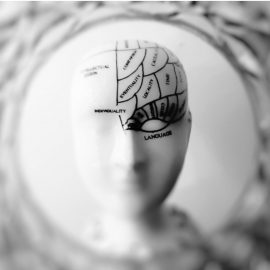

This article is an excerpt from the Shortform book guide to "Maybe You Should Talk to Someone" by Lori Gottlieb. Shortform has the world's best summaries and analyses of books you should be reading.
Like this article? Sign up for a free trial here .
What is Prochaska’s Stages of Change Model? How does it conceptualize successful behavior change? What are the characteristics of each stage?
Prochaska’s Stages of Change Model is an integrative framework that describes the temporal dimension of behavioral change. It stipulates that successful behavior change happens in five stages: pre-contemplation, contemplation, preparation, action, and maintenance.
Read about James Prochaska’s Stages of Change Model.
Prochaska’s Stages of Change: Transtheoretical Model
James Prochaska (1943–present) is a professor of Psychology who specialized in the study of the dynamics of behavior change. In 1977, Prochaska, Carlo Di Clemente, and colleagues developed the Transtheoretical Model of behavior change, which has become one of the dominant models of health behavior modification.
James Prochaska’s Stages of Change Model posits five stages of successful behavior restructuring: 1) pre-contemplation, 2) contemplation, 3) preparation, 4) action, and 5) maintenance.
1. Pre-contemplation: You’re not even thinking about making a change yet. This could also be seen as denial, refusing to even acknowledge that you have a problem.
2. Contemplation: You now recognize that you have a problem and are—in theory—ready to do something about it. However, you haven’t yet started taking action. This is the stage when many people seek therapy, because they know that something’s wrong but feel powerless to change it on their own.
3. Preparation: At this point you’re not yet ready to make the needed change, but you’re getting yourself ready to. This could mean researching how others have dealt with your situation, looking for support groups, or any number of ways that you could ready yourself for a major change.
4. Action: The action stage is when you finally make the change you’ve been thinking about—quit drinking, start going to the gym, or what have you.
5. Maintenance: The final stage is to maintain the change. This is more difficult than it sounds—there are plenty of triggers, or reminders of the old behavior, that may cause you to backslide. However, by this point you should have the proper tools and support to get back on track.
>

———End of Preview———
Like what you just read? Read the rest of the world's best book summary and analysis of Lori Gottlieb's "Maybe You Should Talk to Someone" at Shortform .
Here's what you'll find in our full Maybe You Should Talk to Someone summary :
- How a psychotherapist found herself in need of therapy
- How the therapist sees her own fears and feelings reflect in her patients
- Why you have to be ready to accept uncertainty if want to enjoy life






